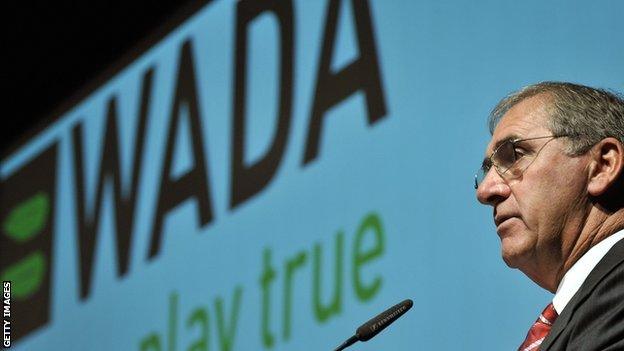World Anti Doping Agency to add 'Olympic ban' to code
- Published

Wada to revise code
The World Anti Doping Agency has revised its code to include an "Olympic ban" for serious drugs offenders.
The British Olympic Association (BOA) recently lost a legal battle to keep its lifetime ban for drugs cheats.
But Wada's revised draft of the code means athletes guilty of serious doping offences could be banned for one Olympic cycle even if their original suspension finishes before the Games.
The new provision is due to be approved in autumn next year.
The rule change is part of a series of amendments which will go out to sports and governments around the world for consultation prior to the code's introduction in 2015.
Wada's proposed change to its code means it would be very similar to the IOC's rule 45, which was also outlawed at the Court of Arbitration for Sport last year following a challenge from the American 400m runner LaShawn Merritt.
He argued successfully that the rule acted effectively as a second sanction - a breach of the original Wada code.
Article 10.15 of the latest draft of the new Wada code now makes clear the provision for banning athletes from the next Olympic Games.
It states: "Where an athlete or other person has been sanctioned for an anti-doping rule violation other than under Articles 10.3.3 (Filing Failures and Missed Tests), 10.3.4 (Prohibited Association), 10.4 (Specified Substances), or 10.5.2 (No Significant Fault or Negligence), and Article 10.5.3 (Substantial Assistance) is not applicable, then, as an additional sanction, the athlete or other person shall be ineligible to participate in the next Summer Olympic Games and the next Winter Olympic Games taking place after the end of the period of ineligibility otherwise imposed."
The BOA and its chairman Lord Moynihan will claim some of the credit for Wada's move on Friday, having argued that the existing two-year sanction was an insufficient deterrent.
A BOA spokesman said: "That's an important step in the right direction, and it's moving toward reflecting the higher standard that athletes want to see."